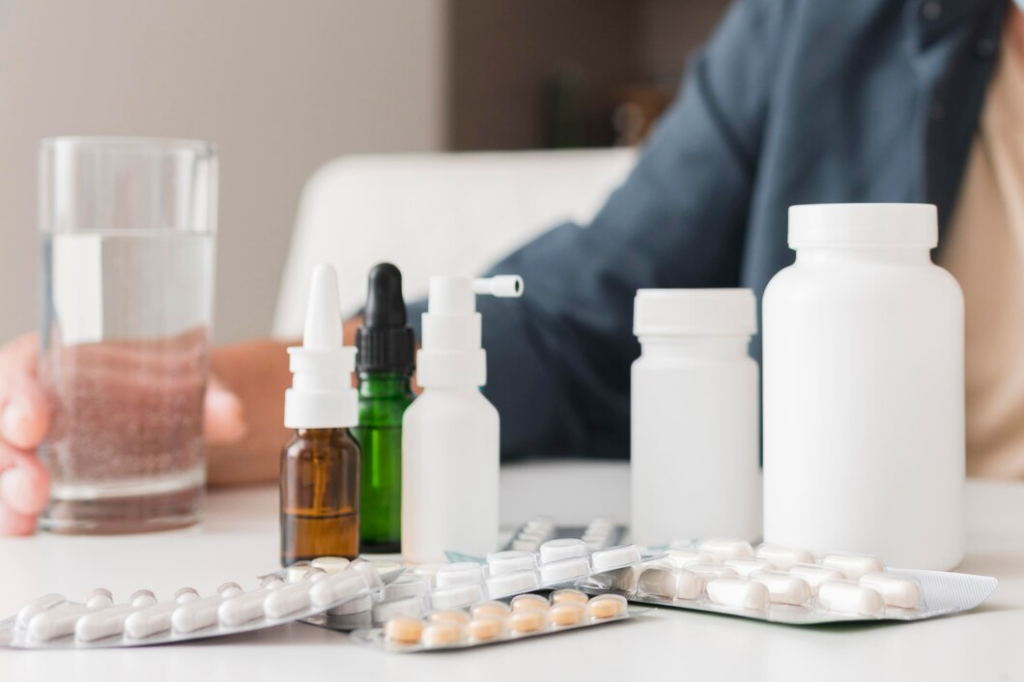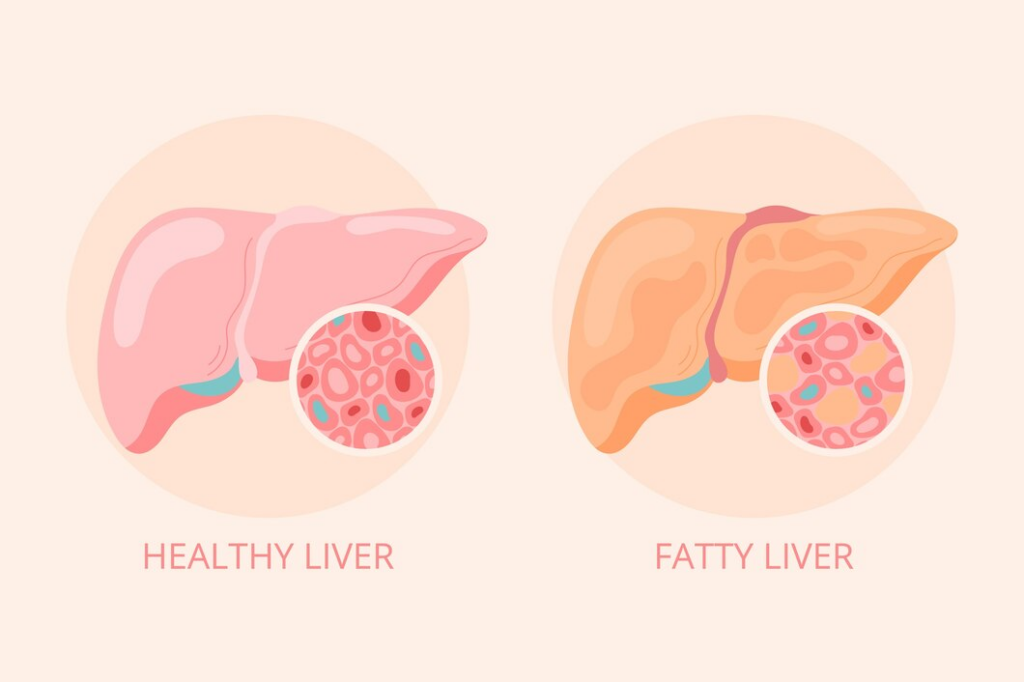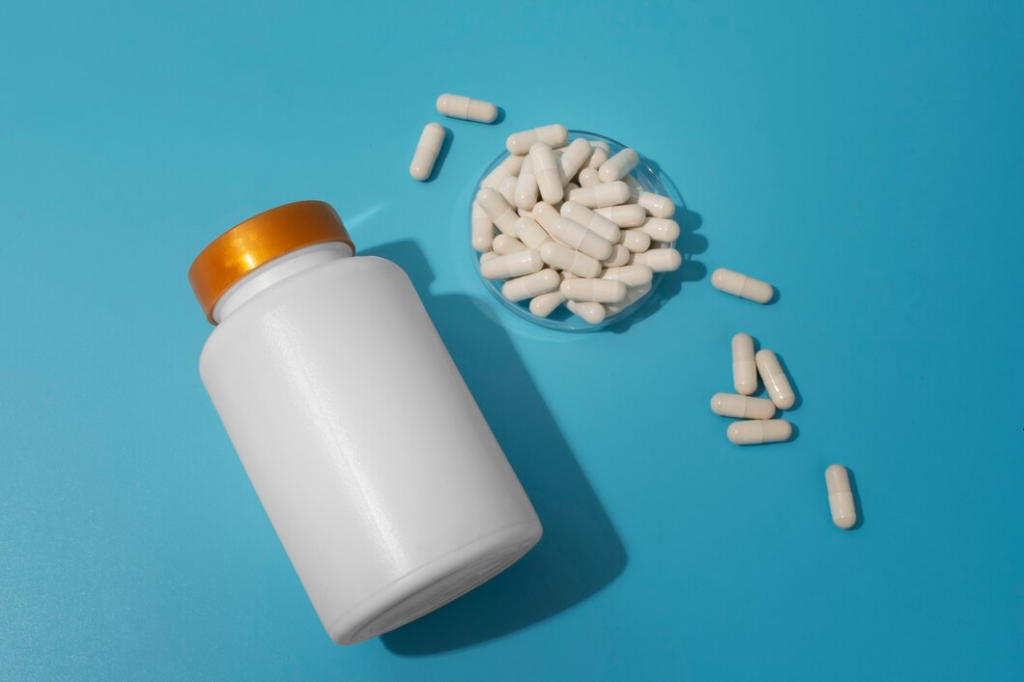
When thinking about health, most people focus on diet, exercise, and the latest wellness trends. But one vital organ quietly works behind the scenes to keep everything in check—your liver.
Often overlooked compared to the heart or brain, the liver plays a crucial role in processing nutrients, detoxifying your body, and regulating various bodily functions. It’s the body’s ultimate filtration system, working non-stop to keep you at your best.
However, the liver is not indestructible. It can be affected by things we might not expect—like certain supplements or medications. In this article, we’ll explore liver health, including the potential risks posed by supplements and how to recognize signs of liver injury. We’ll also dive into a condition called cholestasis and discuss how to maintain your liver’s well-being.
7 Major Signs of Liver Injury
Your liver works hard to keep your body running smoothly, but when it’s not functioning well, your body will give you signals. Here are some common signs of liver injury you shouldn’t ignore:
- Nausea or Vomiting: Unexplained nausea or vomiting can often be linked to liver problems. This is your body’s way of signaling that something might be wrong.
- Abdominal Pain or Swelling: Persistent discomfort or bloating in the upper right side of your abdomen can be a sign your liver is under stress.
- Fatigue or Weakness: Chronic tiredness and weakness may suggest your liver isn’t working at its full capacity, affecting your overall energy.
- Loss of Appetite: If you’re losing interest in food or feeling full quickly, this could point to liver trouble.
- Dark Urine: Dark-colored urine, resembling cola, can indicate a liver issue, especially if it persists.
- Jaundice (Yellowing of the Skin or Eyes): A yellow tint to your skin or the whites of your eyes is a clear sign of liver distress, typically linked to an inability to process bilirubin.
- Bruising or Bleeding Easily: If you notice you’re bruising more easily or experiencing unusual bleeding, it might be due to reduced liver function, as it plays a role in blood clotting.
These signs often appear gradually, so it’s important to pay attention and consult a healthcare professional if you notice any changes.
Cholestasis – The Hidden Culprit
One lesser-known but critical aspect of liver health is cholestasis—a condition where the flow of bile slows down or becomes obstructed. Bile is responsible for helping your body remove toxins, and when this process is disrupted, it can lead to various health issues.
What is Cholestasis?
Cholestasis occurs when the bile flow, responsible for carrying toxins out through your stool, becomes sluggish or blocked. This can happen more often than you might think and significantly impact your overall health.
How Cholestasis Affects Your Health:
- Chronic Fatigue: Sluggish bile flow can leave you feeling constantly tired as your body struggles to eliminate toxins properly.
- Digestive Issues: Conditions like constipation, diarrhea, or IBS can often be linked to cholestasis.
- Hormonal Imbalance: Cholestasis can disrupt hormone metabolism, potentially leading to estrogen dominance.
- Mental Health Effects: Anxiety and depression may be aggravated when your liver’s detox system isn’t functioning well.
- Poor Detoxification: When your liver’s ability to detoxify is compromised, it affects your body’s overall ability to handle toxins.
The Nutritional Connection
Cholestasis can be worsened by nutritional deficiencies, particularly a lack of quality protein and zinc. Addressing these can support bile flow and improve overall liver function.
Understanding cholestasis gives insight into how interconnected our systems are—when the liver struggles, the whole body feels the effects.
Supplements Linked to Liver Injury
While supplements can provide health benefits, some can also pose risks to your liver. It’s important to choose wisely, especially with the growing popularity of these products. Below are common supplements and their LiverTox likelihood scores, which indicate their potential to cause liver injury:
- Ashwagandha – Likelihood: C (Moderate risk)
Known for stress relief, but it carries a moderate risk of liver injury. - Kava Kava – Likelihood: A (High risk)
Used for anxiety relief, but it’s a well-known cause of liver damage. - Green Tea – Likelihood: A (High risk)
Celebrated for its antioxidants, but can cause liver injury in high amounts. - Black Cohosh – Likelihood: A (High risk)
Commonly used for menopause, yet linked to liver injury. - Aloe Vera – Likelihood: B (Low risk, but possible)
While soothing for skin, its internal use can affect the liver. - Garcinia Cambogia – Likelihood: B (Low to moderate risk)
Popular in weight loss supplements, but use with caution. - Hydroxycut – Likelihood: B (Moderate risk)
Linked to several liver injury cases, especially when used for weight loss. - Comfrey – Likelihood: C (Moderate risk)
Often used medicinally but dangerous when taken orally. - Valerian – Likelihood: C (Moderate risk)
Popular for sleep, but can rarely cause liver problems. - Turmeric – Likelihood: B (Low risk, but possible)
Known for its anti-inflammatory properties, but moderation is important.
These likelihood scores highlight the importance of being cautious with supplements. Always consult a healthcare professional, especially if taking multiple supplements or using them long-term.
Common Rx Meds and Over-the-Counter Drugs

While prescription medications and over-the-counter drugs are meant to help, they can sometimes have unintended effects on your liver, especially if taken over a long period. Below are some common medications and their potential to cause liver injury based on LiverTox likelihood scores:
- Ibuprofen – Likelihood: A (Low, but possible)
A commonly used pain reliever that can cause liver issues in rare cases, particularly with overuse. - Acetaminophen (Tylenol) – Likelihood: A[HD] (High doses pose significant risk)
Widely used for pain relief, but in high doses, it’s a leading cause of liver injury. - Aspirin – Likelihood: A[HD] (Risk increases with high doses)
Often used for pain and inflammation, but overuse can strain the liver. - Birth Control Pills – Likelihood: A (Well-known risk)
Oral contraceptives can sometimes affect liver function, especially with long-term use. - Anti-depressants
- Fluoxetine (Prozac) – Likelihood: C (Moderate risk)
- Citalopram (Celexa) – Likelihood: C (Moderate risk)
- Sertraline (Zoloft) – Likelihood: B (Low, but possible)
- Antibiotics
- Amoxicillin – Likelihood: B (Low, but rare cases)
- Azithromycin – Likelihood: A (Well-known risk)
- Amoxicillin and Clavulanate – Likelihood: A (Higher risk)
When it comes to medications, always follow recommended dosages and consult your healthcare provider, especially if you’re taking them for an extended period. Being mindful of potential liver impacts can prevent long-term health issues.
Liver Testing

Regular liver testing provides crucial insight into the health of this vital organ, helping detect potential issues early. Common tests measure enzymes like AST and ALT, which indicate liver injury or inflammation, while bilirubin and alkaline phosphatase levels reflect how well the liver is processing waste and managing bile ducts.
Nutrient levels, such as Vitamin A, iron, and copper, are also assessed since imbalances can stress the liver. Additionally, GGT (Gamma-Glutamyl Transferase) is monitored to identify potential liver disease. Ultrasound imaging may be recommended for a deeper look at conditions like fatty liver or bile duct problems.
Staying on top of these tests allows you to take proactive steps to maintain liver health and address any concerns before they become serious.
Supporting Your Liver
Maintaining a healthy liver requires a mindful approach to your lifestyle. One key aspect is avoiding the temptation to overdo health foods or supplements, as too much of even a good thing can stress the liver. Instead, balance and moderation should guide your nutritional choices.
When it comes to supplements, prioritize those with lower risk scores and always consult a healthcare provider before adding new ones to your routine. If you suspect liver issues, professional advice and liver health tests can provide clarity and guide the next steps in protecting this essential organ.
Beyond avoiding harmful substances, focus on nurturing your liver through a balanced diet, staying hydrated, limiting alcohol, and managing stress. These simple habits go a long way in supporting your liver’s well-being and ensuring it continues to function effectively.
A Healthier Life Starts with Your Liver
Your liver works tirelessly to keep your body in balance, playing an essential role in detoxification and overall health. By being mindful of the substances you consume—whether supplements, medications, or foods—you can support this vital organ and avoid potential risks. Regular check-ups and liver tests, along with a balanced lifestyle, will help ensure that your liver continues to perform at its best.
Taking small, proactive steps today can lead to a healthier future. Your liver deserves attention, and by caring for it, you’re investing in your long-term well-being.





